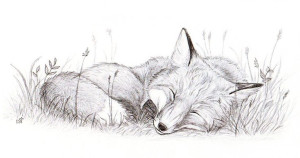Several Annies, do pay attention now as there will be a quiz afterwards!
Well, now. Mackenzie has asked me in as tonight’s guest lecturer. He likes to keep these seminars going through the summer months, you know, when otherwise the staff and denizens of the Kinrowan Estate get too caught up in the long days and short nights in Oberon’s Wood. Remember, Masters and Mistresses, you are supposed to be writing about books here.
And what does it mean, to write ‘about’ books? Hey? Any of you bright-eyed boys and girls ever paused to think about it, in your rush between the reference stacks and Jack’s in barrel? I’ve seen that barrel, and a mighty void it is, too. What are you all about as you proffer your analyses of art to the waiting ether?
Some might consider it a self-referential waste of time, especially the business of review and literary critique. ‘Them as can, do,’ the saying goes. ‘Them as can’t do, teach. And them as can’t do neither, criticize.’ Of course, that old saw is usually trotted out by someone who has written a bad book and been caught at it. There is power and skill needed to review a tale properly, so as to catch the casual reader’s interest and send it on like a well-aimed sling stone to find the original work itself.
But you may need to ask yourselves — and a frightening question it is — are you committing metafiction? When you write about another’s world, are you outlining the borders for the uninformed, or extending them? Are you lighting the path or creating a detour? It’s not my business or concern to tell you that — no, it’s not, so you can put away your notes and that dismayed look, young woman — it’s merely my intent to make you think about it. To read deeply and then to talk about it is a serious thing.
We all walk into books hoping. We hope for joy or mere amusement; for fulfillment of a dream and the filling of an idle hour; for a clear look at something we have glimpsed in dreams, or the first look at what has been unimaginable. When we consent to read a tale, we’re consenting to a journey that we have to take on faith. We hope to be well and safely conveyed the whole way, and not left robbed of our time by some nameless highwayman. We trust the writers to know the way and show us all the best sights. At their best, all writers take us on the perfect road; at your best, you are sharing your experience on that road.
Consider yourselves cartographers, ladies and gentlemen. Every book opened is a new world discovered. Worlds are vast things. They harbor as much danger as delight; neither one is always easy to find, and maps are required. Not all worlds will sustain life — a warning to the explorer behind you on the road can give warning that ahead is a deadly insufficiency of oxygen, or warmth, or wit. A bright red ‘Here Be Dragons’ pulls in as many eager travellers as it warns off the timid ones: someone languishing for the company of dragons may never find their heart’s desire without your directions.
So sharpen your pens and calibrate your compasses. The folk on staff all brought out their brightest inks, and the maps displayed in the books are grand examples to emulate.

